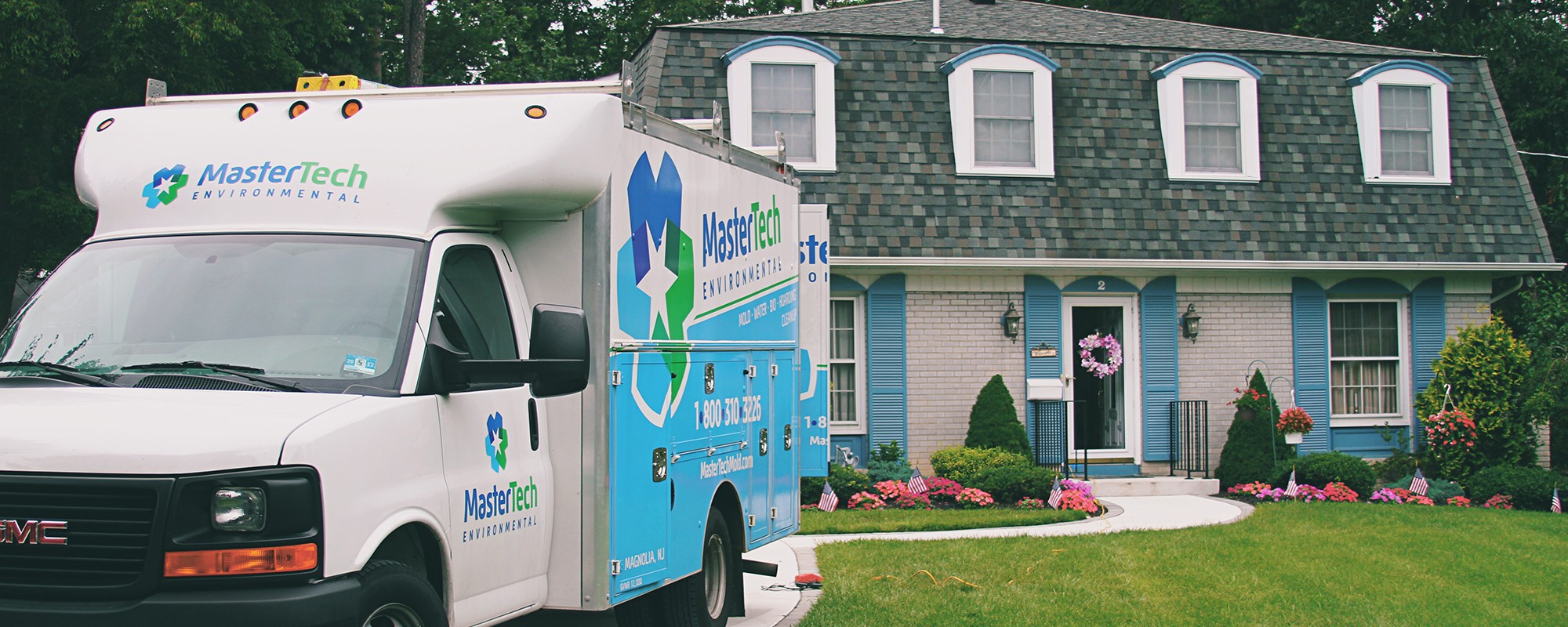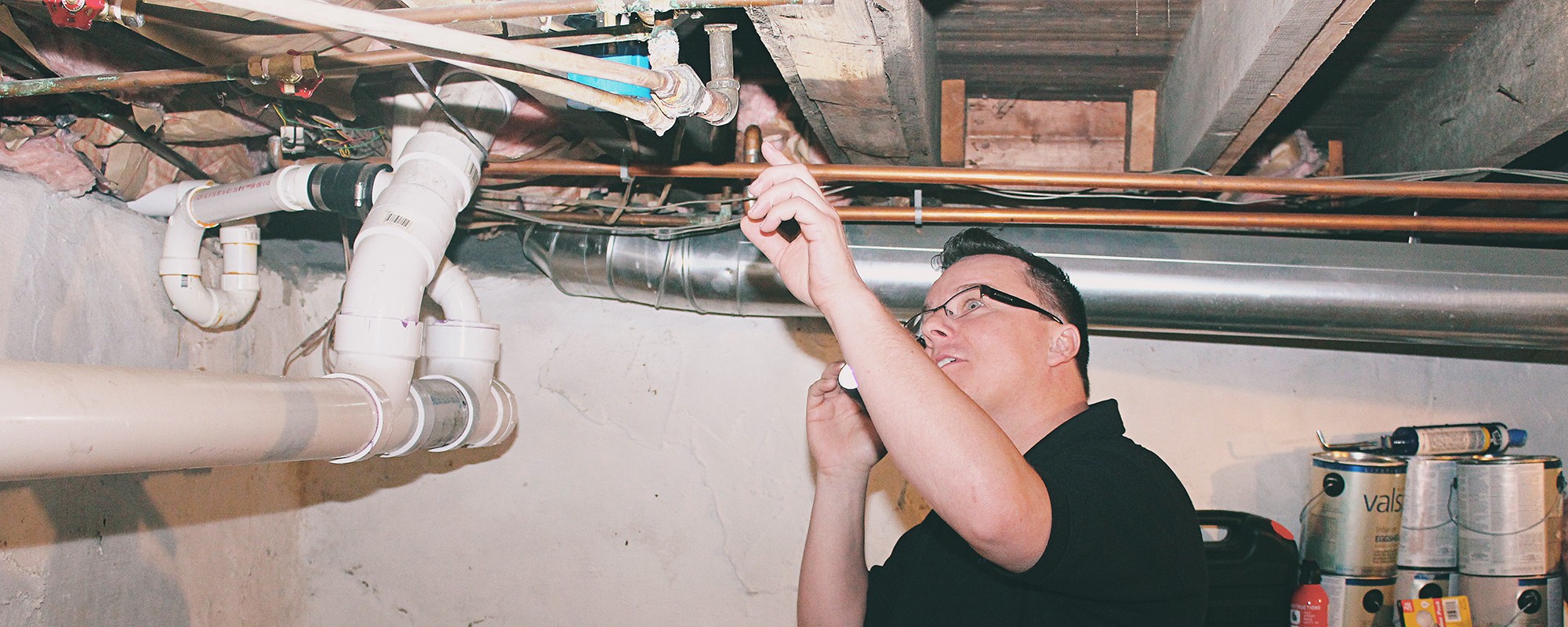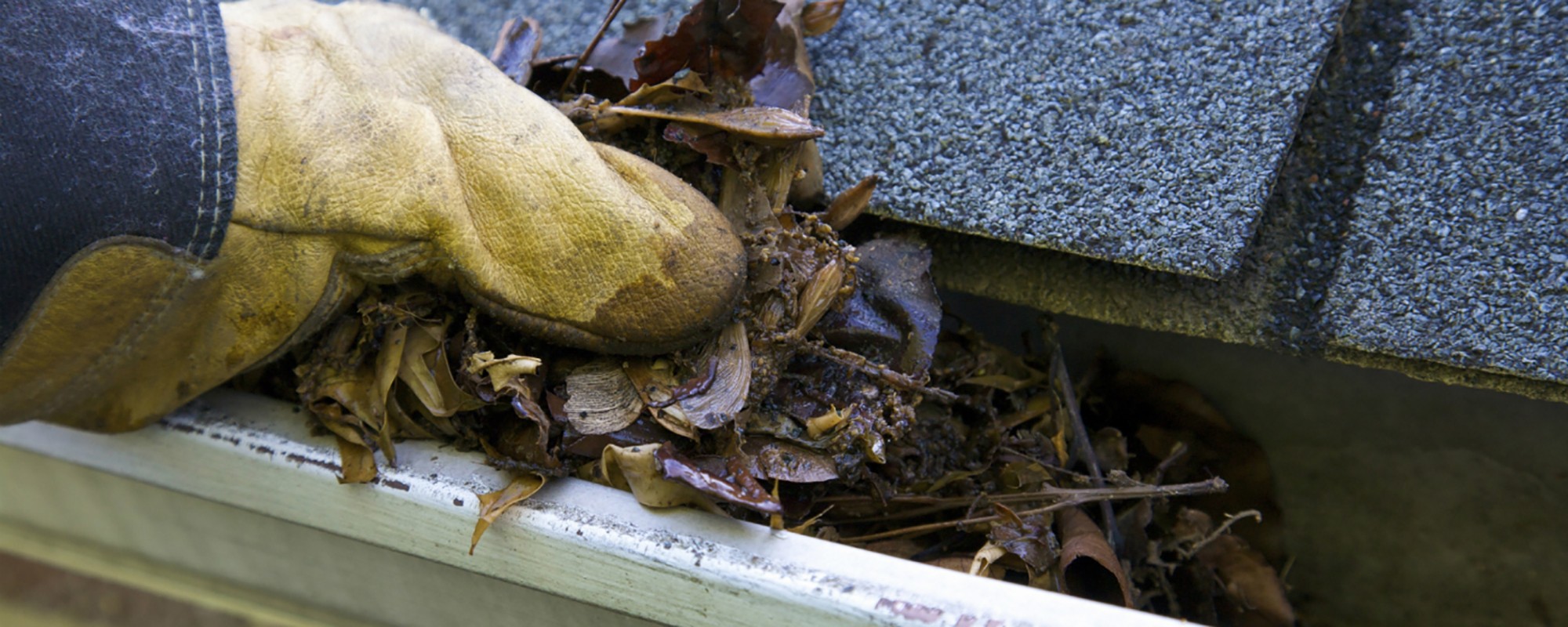New Jersey basements are can easily fall victim to mold growth if homeowners are not careful. Basements are notoriously damp with little to no air circulation, which can create the perfect home for mold. South Jersey springs are known to be fickle, with varying degrees of precipitation and fluctuating temperatures. It is important for NJ homeowners pay close attention to their basements throughout the season in case a moisture problem or mold problem begins to develop. Keep reading to learn more about springtime basement mold prevention in New Jersey properties.
When it comes to mold, early detection is key. New Jersey homeowners should learn to identify the warning signs of mold growth and take action right away before the mold spreads.
What Causes Springtime Basement Mold in New Jersey?
Like mold growth anywhere else, moisture is the main cause of basement mold. Problems like high humidity, limited air ventilation and leaks can allow moisture buildup in your basement. If homeowners do not address the moisture source, mold will develop and spread. In order for springtime basement mold prevention to be successful, it is important for homeowners to understand what causes mold in the first place. Here are some of the more common causes for springtime basement mold:
- High humidity – over 55%
- Water leaking or seeping through foundation walls
- Flooding
- Poor air circulation
- Condensation from ducts
Spring Maintenance & Springtime Basement Mold Prevention Indoors
South Jersey springs are known to be fickle, with varying degrees of precipitation and fluctuating temperatures. It is important for NJ homeowners pay close attention to their basements throughout the season in case a moisture problem or mold problem begins to develop.
Leaks– Take a look around your basement for leaks or signs of leaks.
- Look at your basement ceiling for signs of water leaks from the living spaces above.
- Address all leaks and water damage immediately. You may need to contact a professional for assistance.
- Assess HVAC and plumbing components that run through the basement– Look for leaks or condensation.
Foundation– Assess your foundation walls for signs of damage or water intrusion.
- Pay attention to your basement walls for signs of moisture or water intrusion. If you notice seepage or water leaks through your walls, you may need to contact a professional to waterproof your basement.
- Look signs of foundation damage like cracks, masonry damage, or interior signs in the main living space.
- Manage drainage around your foundation. Rain runoff should away drain away from your home.
Waterproofing– Basement waterproofing involves techniques and materials used to prevent water from penetrating the basement of a house or a building.
- If your basement is below ground level, it may require basement waterproofing to help combat seepage or moisture buildup from groundwater.
- Basement waterproofing can mean the application of sealant materials, the installation of drains and sump pumps, and more.
- If you are considering basement waterproofing, you should consult a trained professional will be able to properly handle the job.
Dehumidifier– Basement dehumidifiers are designed to manage humidity levels and your basement humidity below 50%. If your basement is especially damp or humid, a dehumidifier can help.
- Make sure that you pick a dehumidifier that is the right size and capacity for the needs of that specific space to ensure effectiveness.
- Regular dehumidifier maintenance will help to preserve the quality and effectiveness of your unit.
Declutter– Basements are often used for storage. Excessive stored items can restrict air circulation and allow moisture buildup. Take some time to regularly organize and purge some of your stored items. This will open up your basement and help to optimize air flow.
Spring Maintenance & Springtime Basement Mold Prevention Outdoors
Landscape– Conditions around the property can be equally important to help keep your basement dry this spring. Get out there and check your lawn, trees and other landscaping.
- Plant trees at a safe distance away from your home. Tree roots are aggressive and their growth can apply unwanted pressure to your foundation walls.
- Your lawn should slope away from your home. If you notice that your lawn is graded in the wrong direction, towards your home, your home may be vulnerable to flooding. You should consult a landscaper for an appropriate solution.
- Pay attention the water pattern during periods of heavy springtime rain. If you notice consistent pooling anywhere, contact a landscaper or excavation contractor for advice on how to direct the water away from your home.
- When placing mulch, be sure to leave a 6-inch gap between the mulch and the siding of the home. The moisture in the mulch can wick into the siding and rot away the building materials.
Drainage– Check drains regularly to make sure that they are free of obstructions and functioning effectively.
- If you have basement floor drains, check them regularly to look for any obstructions in or around the drain (dirt, debris, storage items, etc.). Optimized drainage will help to avoid flooding.
- If you have steps leading to your basement, make sure the drain at the base of the steps is free and clear of debris. Stair drains in older homes tend to be on the smaller size and are prone to clogging.
Gutters– Regularly check gutters and downspouts maintenance opportunities, ensure they are free of obstruction, draining properly and directing water away from the home.
- Gutters and downspouts should always direct water AWAY from foundation walls. Downspouts should extend at least six feet out.
- Clean your gutters regularly– your gutters should be free of all debris to avoid backups.
- To help prevent leaves from getting into your gutter, you can install gutter guards.
- Make sure that the downspouts are not connected to your foundation footer drain tiles or to underground dry wells.
Dangers of Springtime Basement Mold Growth in New Jersey
Mold growth in your NJ basement can mean serious health problems and serious structural damage to your property. Certain species of mold have the potential to produce mycotoxins that are toxic to humans. Exposure to mold can result in symptoms ranging from mild allergies to serious upper respiratory problems. Each person will react differently to mold exposure. Symptoms vary depending on the individual, the length of time of exposure, the species of mold and several other factors.
The purpose of mold in the natural, outdoor environment is to breakdown dead organic matter to be recycled back into the ecosystem. Now, imagine mold doing that to the building materials of your home. Mold and the underlying water problem will eat away at the structure of your home and do some serious damage to your property.
As a South Jersey homeowner, you can protect your family and home by conducting routine basement maintenance checks at the start of each spring season and implement the necessary springtime basement mold prevention. Moisture control and springtime mold prevention can be pretty affordable and can go a long way to avoid an expensive mold remediation.






